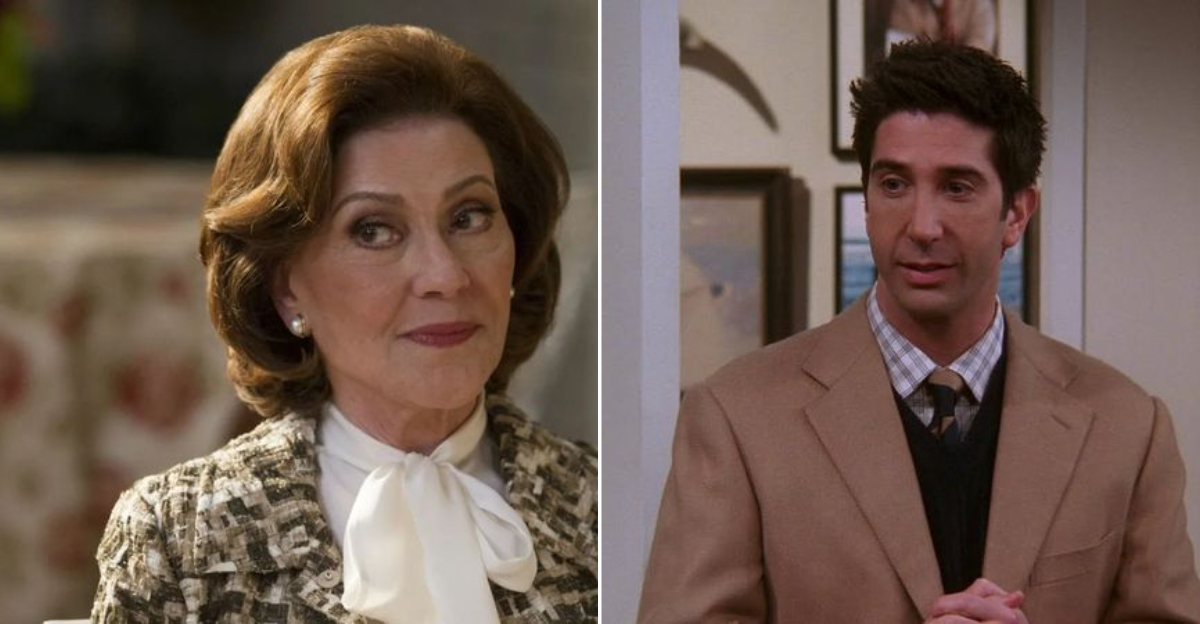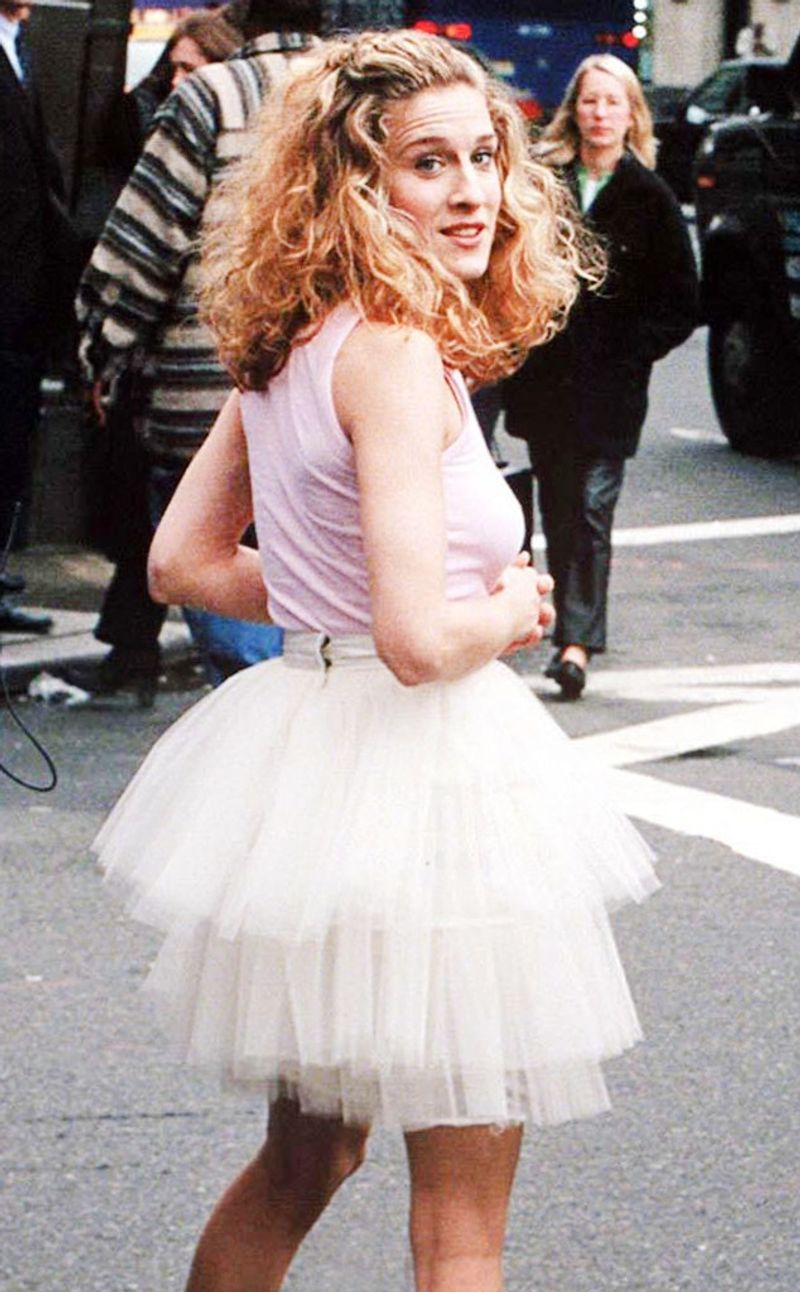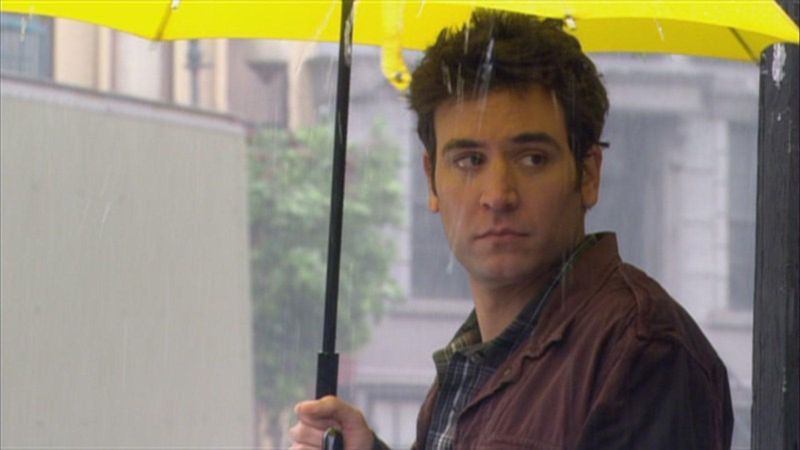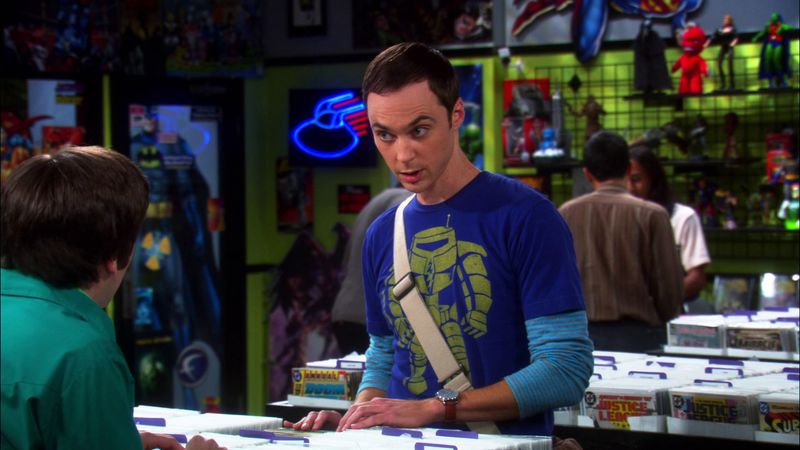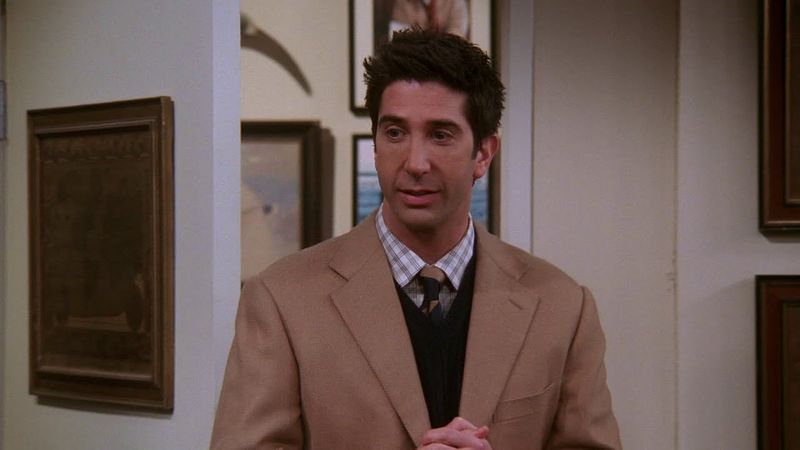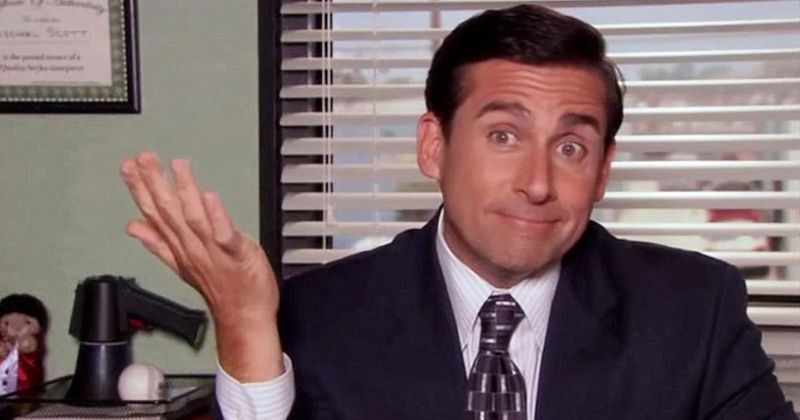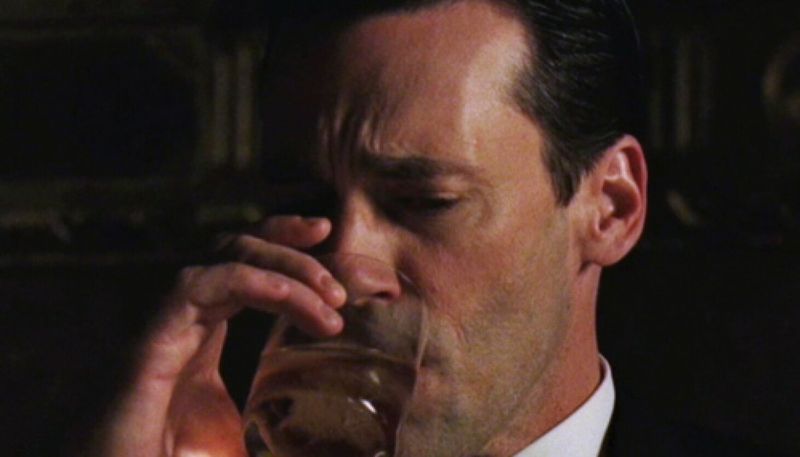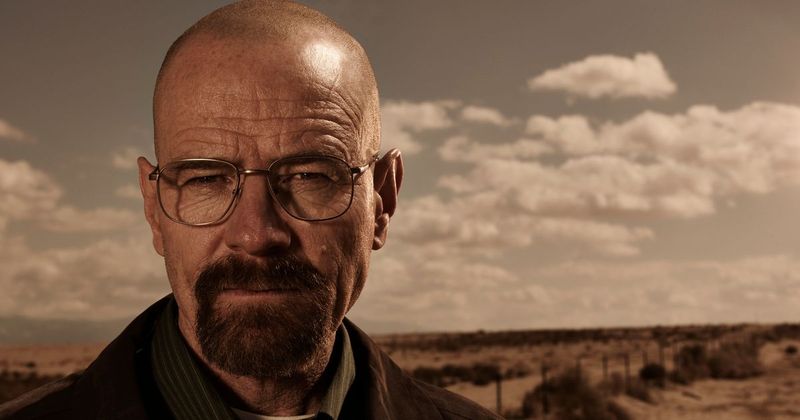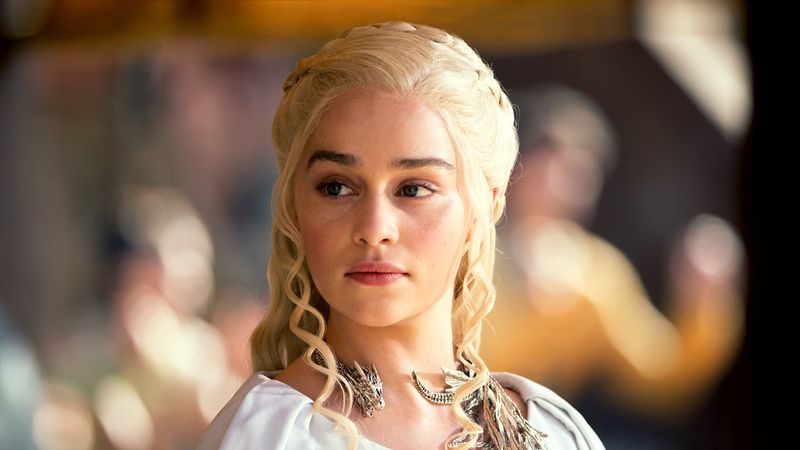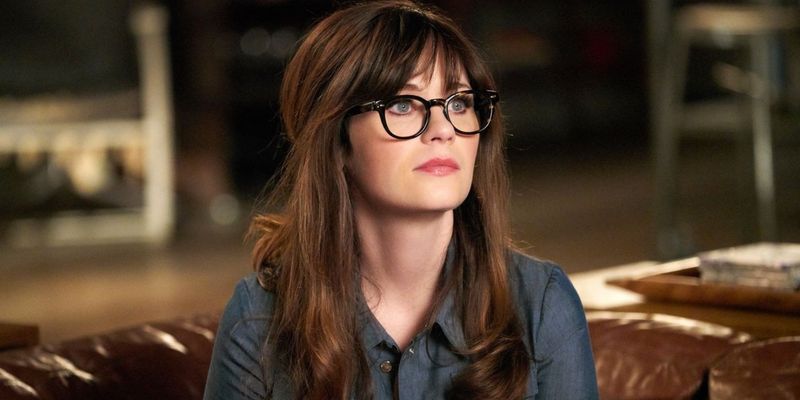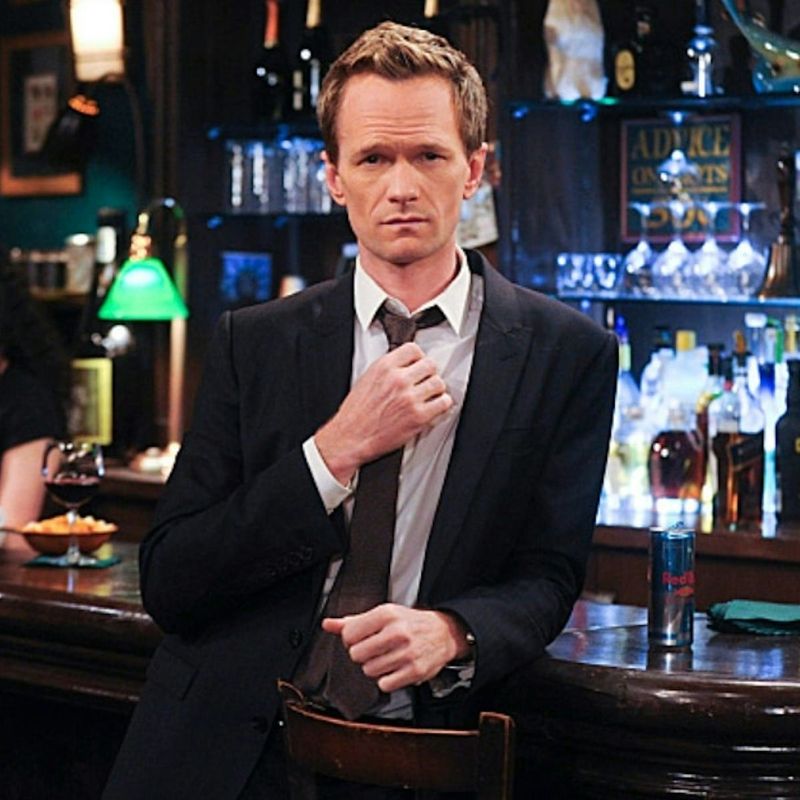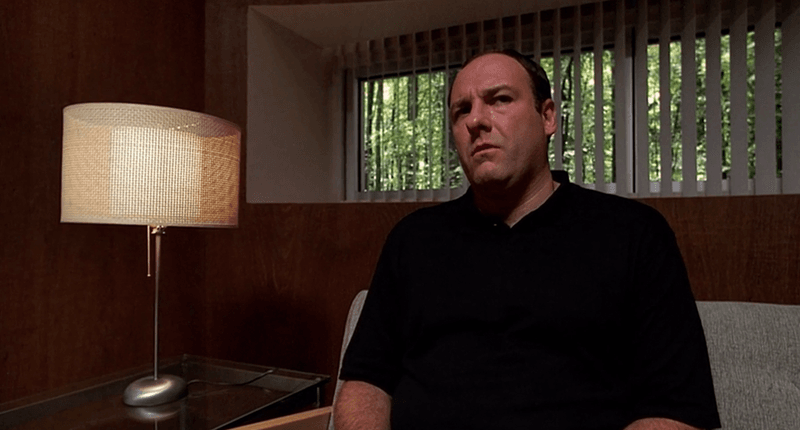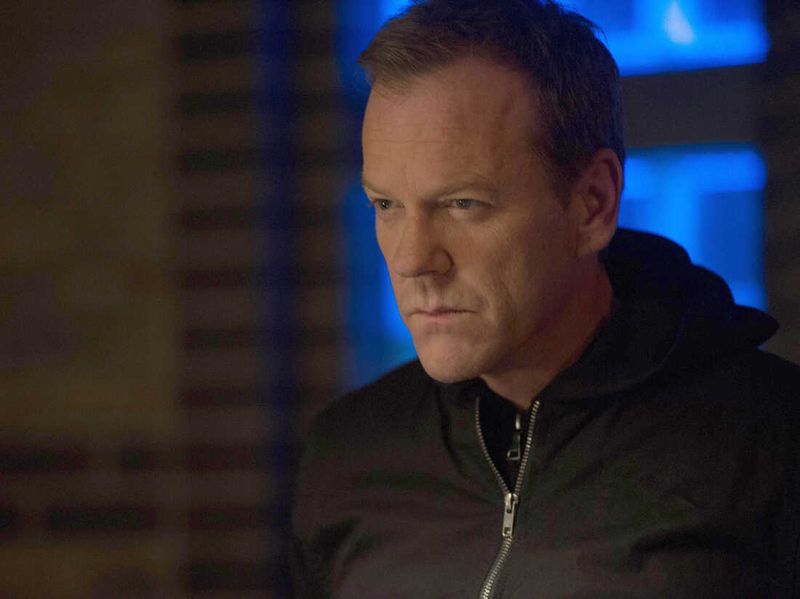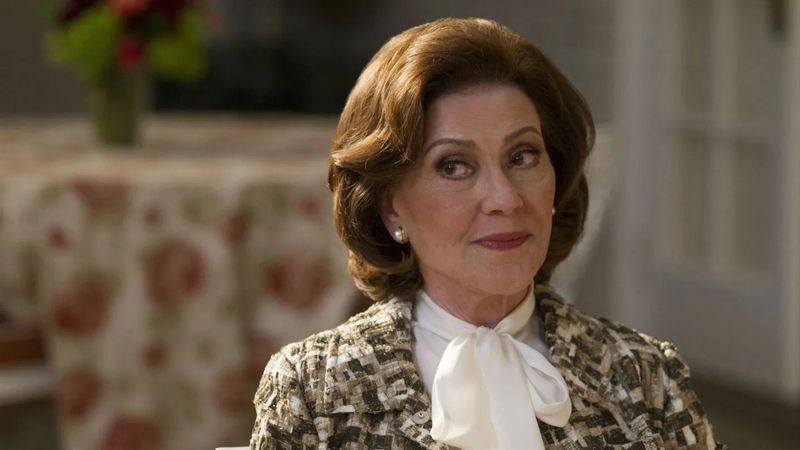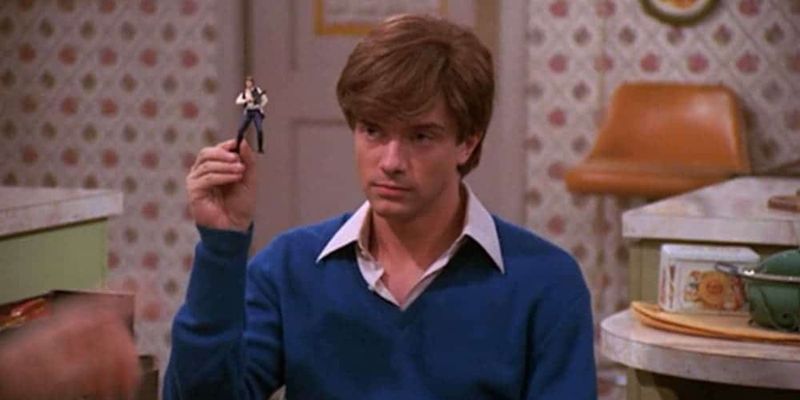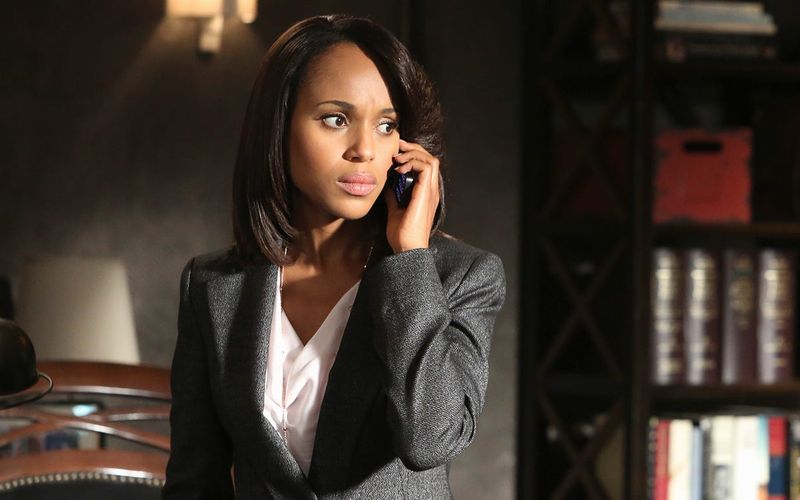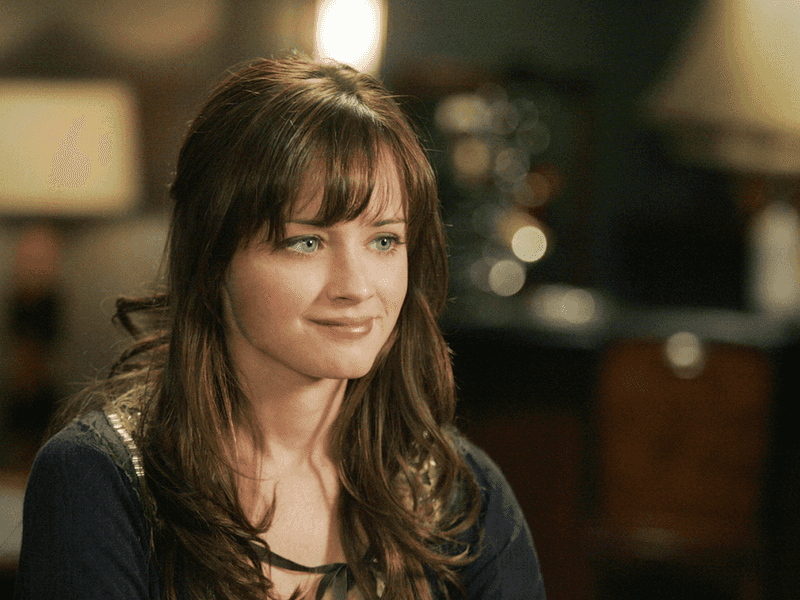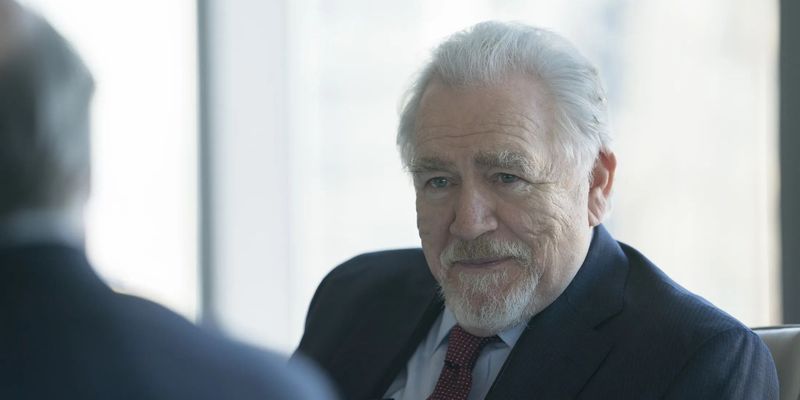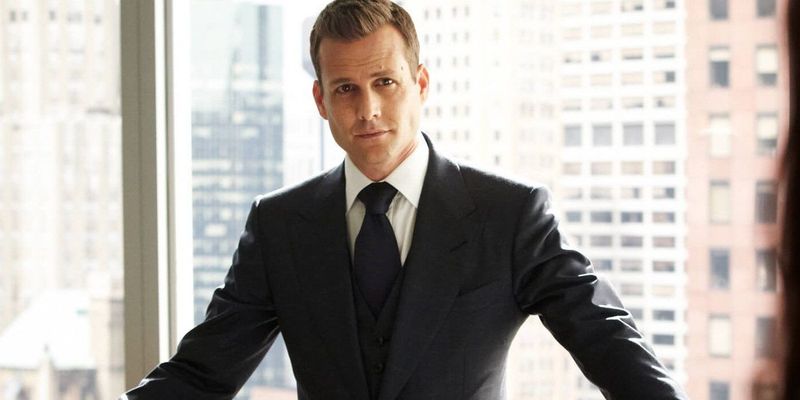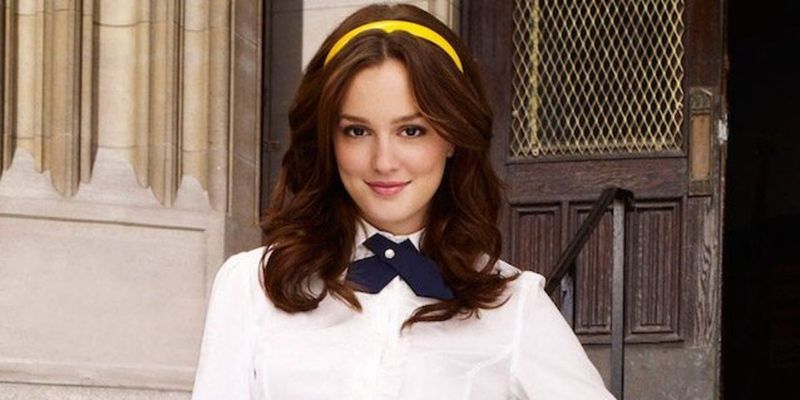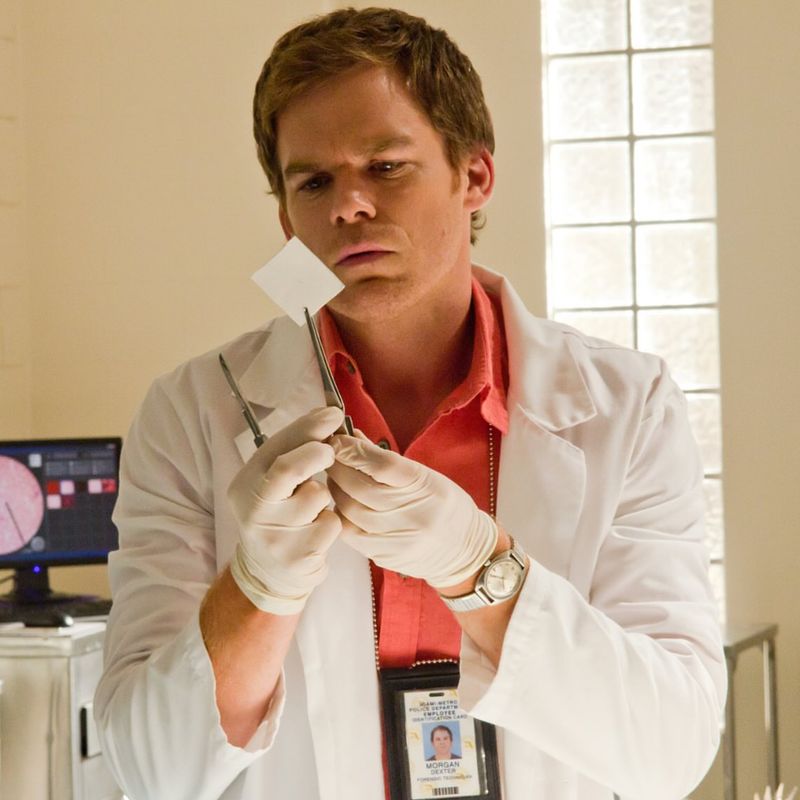They’re fan favorites, meme-worthy, and often the reason people tune in. But if you take off the nostalgia goggles and look closer… these characters? Kinda the worst. Whether they’re toxic, selfish, or just plain annoying, these 23 beloved TV icons have some serious flaws hiding behind their charm.
1. Carrie Bradshaw – Sex and the City
Carrie Bradshaw, with her knack for fashion and flair for drama, often finds herself in tangled relationships. Her romanticized view of love leads her down paths of unending chaos. Instead of learning from mistakes, Carrie often repeats them with a sense of misguided optimism.
Her friendships often take a backseat to her romantic pursuits. Carrie’s financial mismanagement, especially her shoe obsession, is another glaring flaw.
Carrie’s stories, though engaging, often feel like a cautionary tale rather than a guide for genuine connection. Her character embodies the complexities of modern love, yet often misses reality’s mark.
2. Ted Mosby – How I Met Your Mother
Ted Mosby, the hopeless romantic architect, dreams of finding “the one” in “How I Met Your Mother.” Despite his endearing optimism, Ted’s journey is littered with pretentiousness and entitlement.
His relentless pursuit of love often blinds him to the very red flags he should notice. Ted’s tendency to overlook his flaws while fixating on others’ imperfections is a recurring theme.
Though his quest for love is relatable, Ted’s self-righteousness often tarnishes his charm. His story serves as a reminder that love isn’t a checklist, and sometimes, it’s found when least expected.
3. Sheldon Cooper – The Big Bang Theory
Sheldon Cooper, the eccentric physicist from “The Big Bang Theory,” is a genius with little regard for social cues. His intellect, though impressive, often overshadows his inability to empathize with others.
Sheldon’s manipulative tendencies and dismissive nature create tension within his social circle. His refusal to compromise or admit wrongdoing is a hallmark of his character.
While his quirks are endearing, his lack of accountability often leaves viewers frustrated. Sheldon exemplifies how brilliance doesn’t excuse insensitivity, and his journey is one of slow, reluctant growth in understanding friendship.
4. Ross Geller – Friends
Ross Geller, the loveable paleontologist from “Friends,” is known for his iconic “We were on a break!” line. However, beneath the charm lies a character riddled with insecurities and control issues. His obsession with winning back Rachel often clouds his judgment.
Ross’s jealousy and possessiveness are masked by his romantic gestures. He struggles with respecting boundaries, often leading to awkward and hurtful situations.
In his quest for love, Ross becomes a caricature of himself, constantly repeating his mistakes. His behavior is frustratingly cyclical, making him a character viewers love to hate.
5. Michael Scott – The Office
Michael Scott, the bumbling regional manager of “The Office,” is beloved for his cringe-worthy antics. Yet, his inappropriate humor and lack of awareness often cross the line, creating a toxic work environment.
His need for approval drives him to make decisions that are detrimental to his team. Michael’s inability to separate friendship from leadership results in chaos.
Despite his comedic charm, Michael’s insensitivity and poor judgment highlight the challenges of ineffective leadership. His journey is a testament to the fine line between endearing naivety and harmful irresponsibility.
6. Rachel Berry – Glee
Rachel Berry, the ambitious star of “Glee,” is a powerhouse vocalist with an ego to match. Her relentless pursuit of fame often leads her to trample over others.
Rachel’s self-centered nature and lack of humility create friction within her choir. Her belief that success is her destiny blinds her to the value of teamwork.
While her talent is undeniable, her arrogance and entitlement make her a polarizing figure. Rachel’s journey is a complex dance between ambition and empathy, a reminder that talent alone doesn’t define greatness.
7. Don Draper – Mad Men
Don Draper, the enigmatic ad executive from “Mad Men,” is a master of reinvention. However, his polished exterior hides a turbulent personal life marked by deception and infidelity.
Don’s struggle with identity and morality often leads him to make questionable choices. His charisma is overshadowed by his inability to form genuine connections.
While Don’s story is captivating, it reflects the dangers of living a double life. His character embodies the allure and peril of the American Dream, where success often comes at a personal cost.
8. Walter White – Breaking Bad
Walter White, the chemistry teacher turned drug lord in “Breaking Bad,” is a character defined by transformation. His descent into the criminal underworld is driven by pride and desperation.
Walter’s brilliance is clouded by his moral decay, as he justifies his actions under the guise of providing for his family. His journey from meek educator to ruthless kingpin is both tragic and compelling.
While his story is a thrilling cautionary tale, it underscores the destructive power of unchecked ambition. Walter’s legacy is a stark reminder of the thin line between heroism and villainy.
9. Daenerys Targaryen – Game of Thrones
Daenerys Targaryen, the Mother of Dragons in “Game of Thrones,” is both a liberator and a conqueror. Her quest to reclaim the Iron Throne is marked by triumph and tragedy.
Daenerys’s idealism often clashes with her ruthless tactics, leading to devastating consequences. Her belief in her destiny blinds her to the complexities of power.
While she inspires loyalty, her ambition and hubris ultimately lead to her downfall. Daenerys’s journey is a cautionary tale of how power can corrupt even the most noble intentions.
10. Jess Day – New Girl
Jess Day, the quirky teacher from “New Girl,” is known for her upbeat personality and eccentric habits. Her charm, however, often verges on overwhelming.
Jess’s tendency to avoid confrontation leads to passive-aggressive behavior. Her neediness and dependence on friends for validation can be exhausting.
While her innocence is endearing, Jess’s lack of growth can be frustrating. Her character serves as a reminder that quirkiness should evolve into maturity, rather than remain stagnant.
11. Barney Stinson – How I Met Your Mother
Barney Stinson, the legendary womanizer from “How I Met Your Mother,” is as infamous for his playbook as he is for his catchphrases. His charm masks a more troubling character.
Barney’s antics, though humorous, often reveal a lack of respect for women. His behavior is a relic of an era less attuned to modern sensibilities.
While his escapades are comical, they also serve as a critique of toxic masculinity. Barney’s journey, though entertaining, underscores the importance of growth and empathy in relationships.
12. Tony Soprano – The Sopranos
Tony Soprano, the mob boss from “The Sopranos,” is a paradox of power and vulnerability. His criminal exploits are tempered by his struggles with mental health.
Tony’s charisma cannot hide his violent tendencies and disregard for the law. His attempts to balance family life with his criminal empire often lead to conflict.
While his story is compelling, it serves as a reminder that charisma does not absolve ethical failings. Tony’s journey is a masterclass in the complexities of human nature.
13. Jack Bauer – 24
Jack Bauer, the relentless agent from “24,” is a hero defined by his willingness to sacrifice everything for national security. However, his methods often border on the extreme.
Jack’s penchant for breaking rules and torturing suspects makes him a controversial figure. His actions, though effective, raise ethical questions.
While his dedication is admirable, Jack’s story is a cautionary tale about the costs of unwavering commitment. His journey reflects the moral ambiguity of the fight against terror.
14. Emily Gilmore – Gilmore Girls
Emily Gilmore, the matriarch of “Gilmore Girls,” embodies sophistication and control. Her sharp wit often masks a deeper need for influence over her family’s life.
Emily’s manipulative tendencies and insistence on tradition create tension with her daughter, Lorelai. Her desire for perfection often blinds her to the changing dynamics of family.
While her character is formidable, it serves as a reminder of the perils of rigidity. Emily’s journey highlights the importance of adaptability and understanding in familial relationships.
15. Eric Forman – That ’70s Show
Eric Forman, the sarcastic teen from “That ’70s Show,” navigates adolescence with a mix of wit and insecurity. His humor often conceals deeper uncertainties about his identity.
Eric’s interactions with his friends and family reveal a tendency to deflect with sarcasm. His reluctance to face consequences is a recurring theme.
While his quips are entertaining, they highlight the struggle of avoiding genuine connection. Eric’s journey is a testament to the challenges of growing up and the importance of self-discovery.
16. Olivia Pope – Scandal
Olivia Pope, the fixer from “Scandal,” is renowned for her ability to navigate political crises with finesse. However, her personal life is often chaotic.
Olivia’s moral compromises and involvement in toxic relationships highlight the complexities of power. Her struggle to balance personal integrity with professional demands is evident.
While her character is compelling, it underscores the challenges of maintaining authenticity in a world of spin. Olivia’s journey reflects the cost of ambition and the search for true identity.
17. Rory Gilmore – Gilmore Girls
Rory Gilmore, the once-precocious daughter from “Gilmore Girls,” faces the challenges of adulthood with mixed results. Her academic prowess often masks deeper insecurities.
Rory’s journey from idealistic student to troubled adult is fraught with questionable choices. Her struggles with relationships and career ambitions reveal a lack of direction.
While her story is relatable, it highlights the pitfalls of unchecked privilege. Rory’s journey serves as a reminder that intelligence must be paired with self-awareness and responsibility.
18. Andy Dwyer – Parks and Recreation
Andy Dwyer, the lovable goofball from “Parks and Recreation,” is a character defined by his boundless enthusiasm. However, his lack of maturity often leads to chaos.
Andy’s reliance on others to handle responsibilities highlights his reluctance to grow up. His antics, while humorous, often create problems for those around him.
While his innocence is endearing, Andy’s journey underscores the importance of personal growth. His character serves as a reminder that charm alone cannot substitute for accountability and development.
19. Logan Roy – Succession
Logan Roy, the patriarch from “Succession,” is a titan of industry whose influence is both feared and revered. His cutthroat approach to business is tempered by his complex relationship with family.
Logan’s ruthless pursuit of success often comes at the expense of personal connections. His manipulative tactics create a toxic family dynamic.
While his story is gripping, it serves as a cautionary tale about the costs of power. Logan’s journey highlights the dangers of prioritizing ambition over relationships.
20. Harvey Specter – Suits
Harvey Specter, the suave lawyer from “Suits,” is known for his sharp wit and impeccable style. However, his ego often overshadows his brilliance.
Harvey’s relentless pursuit of success often leads him to disregard the feelings of others. His interactions are marked by a constant need to assert dominance.
While his character is charismatic, it underscores the importance of humility in leadership. Harvey’s journey illustrates the fine line between confidence and arrogance.
21. Blair Waldorf – Gossip Girl
Blair Waldorf, the queen bee of “Gossip Girl,” is a style icon with a penchant for manipulation. Her quest for social dominance often leads her to exploit friendships.
Blair’s elitist tendencies and desire for control create friction within her social circle. Her schemes, though entertaining, often come at the cost of genuine connection.
While her character is captivating, it serves as a reminder of the hollow nature of superficial power. Blair’s journey highlights the importance of authenticity and empathy.
22. Dexter Morgan – Dexter
Dexter Morgan, the titular character of “Dexter,” lives a double life as a forensic analyst and a vigilante killer. His moral code, though strict, is chilling in its application.
Dexter’s need to satiate his darker impulses often leads to ethical dilemmas. His attempts to balance his professional and personal lives are fraught with tension.
While his story is captivating, it serves as a chilling exploration of morality. Dexter’s journey underscores the thin line between justice and vengeance.
23. Meredith Grey – Grey’s Anatomy
Meredith Grey, the central figure of “Grey’s Anatomy,” navigates the complexities of hospital life with determination. However, her emotional distance often complicates her relationships.
Meredith’s tendency to prioritize work over personal connections reflects her struggle with vulnerability. Her journey is marked by moments of brilliance overshadowed by personal turmoil.
While her character is resilient, it highlights the importance of balance between career and personal life. Meredith’s journey is a poignant reminder of the cost of emotional detachment.
